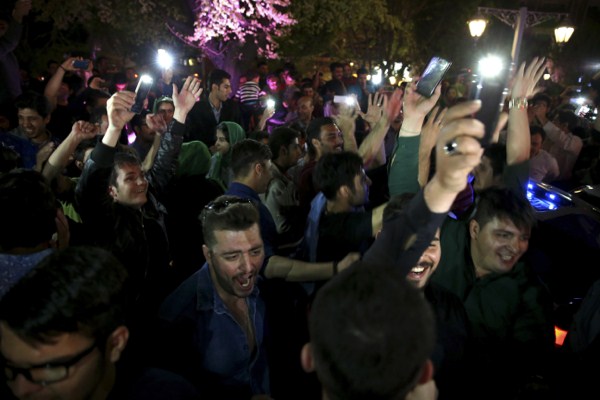The framework agreement announced last week by Iran and the P5+1 states—the United States, Britain, France, Russia, China and Germany—on how to regulate Tehran’s nuclear enrichment program faces many obstacles before it can be finalized as a formal accord by the self-imposed June 30 deadline. To survive the onslaught of spoilers on all sides, however, the permanent deal will need to be sound not only on the technical level, in terms of the verifiable limits it places on Iran’s nuclear enrichment capability, but also on the political level.
Nevertheless, the successful outcome of the talks in Lausanne, Switzerland has revived the momentum of the negotiations for the administrations of U.S. President Barack Obama and Iranian President Hassan Rouhani, both of whom have invested much political capital in the process. Between the initial November 2013 interim agreement, renewed twice, and last week, talks had been losing steam, giving opponents to a deal on both sides time and opportunity to undermine them.
For Rouhani, in particular, successfully reaching a final deal will give him more political capital to pursue his other major electoral promises, among them being to de-securitize Iranian society—including easing some censorship of the media, releasing more political activists imprisoned after 2009 and further relaxing the atmosphere on university campuses. This is part of a tacit process to restore a modus vivendi between the reformist wing of the political elite and its constituents—who were badly bruised in the aftermath of the 2009 presidential election debacle—on one hand, and the conservative political establishment on the other. The problem is that the manifold actors within the Iranian security apparatus—which includes the Ministry of Intelligence, the judiciary and the Islamic Revolutionary Guard Corps (IRGC) intelligence division, among others—are not fully on board with this reconciliation of sorts, and without a nuclear deal the Rouhani administration will not have the necessary leverage to make good on this promise.

